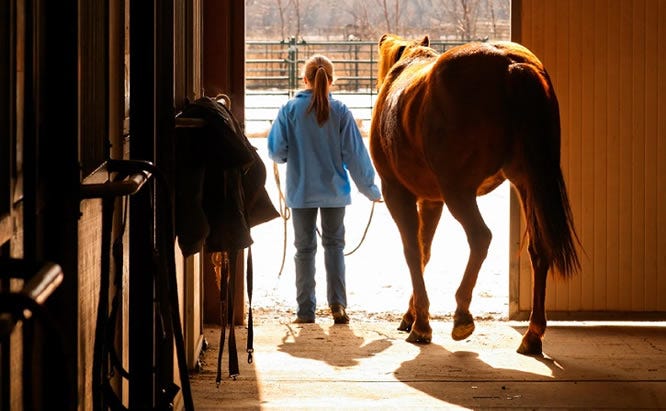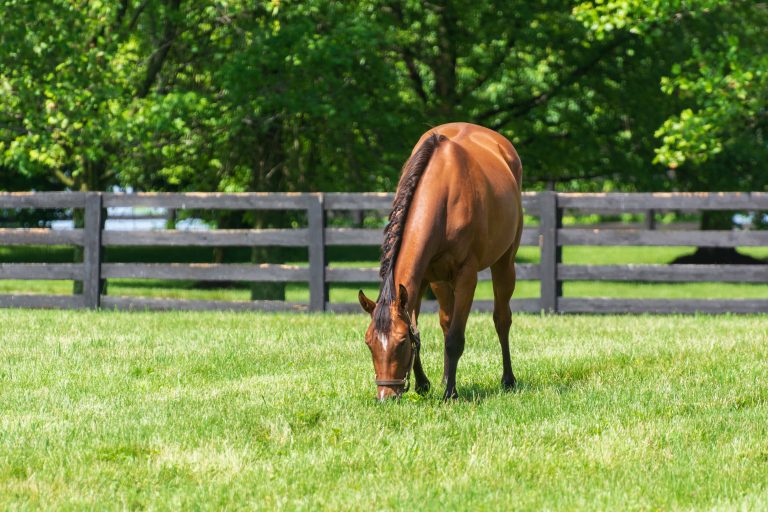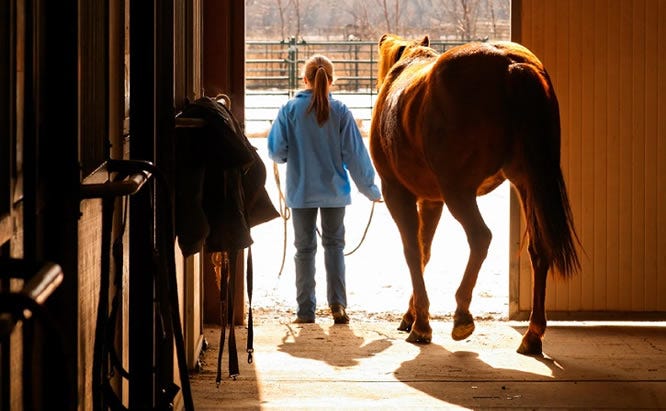Caring for a senior horse brings immense joy and responsibility. As these cherished animals age, their needs evolve, and recognizing senior horse pain signs becomes vital. Early detection ensures that your equine companion continues to enjoy a comfortable and healthy life.

Understanding Senior Horse Pain
Understanding the nature of pain in senior horses is crucial. Just like humans, as horses age, they experience changes in their bodies, which can result in discomfort or pain. It’s essential to be attentive to these changes to provide appropriate care.
Common Causes of Pain in Senior Horses
Arthritis and Joint Issues
One of the most common issues in older horses is arthritis. This condition leads to inflammation in the joints, causing stiffness and pain. Observing your horse for signs of discomfort during movement is crucial.
Dental Problems
As horses age, dental issues can arise, leading to pain and difficulty in eating. Regular dental check-ups are necessary to prevent and address these problems promptly.
Muscle and Ligament Strain
Senior horses may experience muscle and ligament strains due to their reduced flexibility and strength. Monitoring changes in gait or reluctance to move can indicate such issues.
Recognizing Pain in Senior Horses
Changes in Behavior
Behavioral changes are often the first indicator of pain in horses. Pay attention to signs such as irritability, depression, or aggression.
Altered Eating Habits
Noticeable changes in eating habits, such as a reduced appetite or difficulty chewing, can signal dental pain or other health issues.
Movement and Posture
Observe your horse’s movement and posture. Limping, stiffness, or reluctance to move are clear signs of discomfort.
Vocalizations and Expressions
While horses don’t vocalize pain like humans, changes in vocalizations or facial expressions can be indicators of distress.
Conducting a Thorough Physical Examination
Regular physical examinations are essential for identifying pain in senior horses. This involves checking for swelling, heat, or tenderness in various body parts.
Professional Veterinary Assessment
Consulting a veterinarian is crucial for a thorough assessment of your horse’s health. A professional can conduct detailed examinations and recommend appropriate treatments.
Managing and Alleviating Pain
Proper Nutrition
Providing a balanced diet tailored to the needs of senior horses can help in managing pain and ensuring overall well-being.
Exercise and Physical Therapy
Engaging your horse in appropriate exercises and physical therapy can improve mobility and reduce pain.
Medication and Supplements
Veterinarians may prescribe medications or supplements to manage pain effectively. It’s essential to follow their guidance closely.
Preventive Measures
Regular Check-Ups
Scheduling regular veterinary check-ups is vital for the early detection of pain-related issues.
Proper Shelter and Bedding
Ensuring your horse has a comfortable shelter and appropriate bedding can help prevent pain and discomfort. For more information on selecting the best bedding, visit best bedding.
Hydration and Nutrition
Maintaining proper hydration and nutrition is crucial for your horse’s health. Learn more about hydration tips at senior horse hydration.
The Role of Environment
Creating a safe and comfortable environment is essential for minimizing stress and pain. Consider pasture management tips for older horses at pasture management.
The Importance of Emotional Well-being
Caring for your horse’s emotional health is as important as physical care. Ensuring social interaction and mental stimulation can greatly enhance their quality of life.

FAQs
How can I tell if my senior horse is in pain?
Look for changes in behavior, eating habits, and movement. Conduct regular physical examinations and consult a veterinarian for a professional assessment.
What are the common causes of pain in senior horses?
Arthritis, dental problems, and muscle or ligament strains are common causes of pain in older horses.
How can I manage my senior horse’s pain?
Proper nutrition, exercise, and veterinary-prescribed medications or supplements can help manage pain effectively.
For further insights on caring for senior horses, visit this guide on horse care.
This article contains affiliate links. We may earn a commission at no extra cost to you.
